#rituparno ghosh
Text
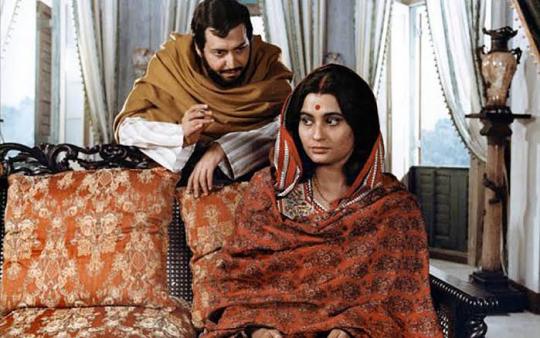
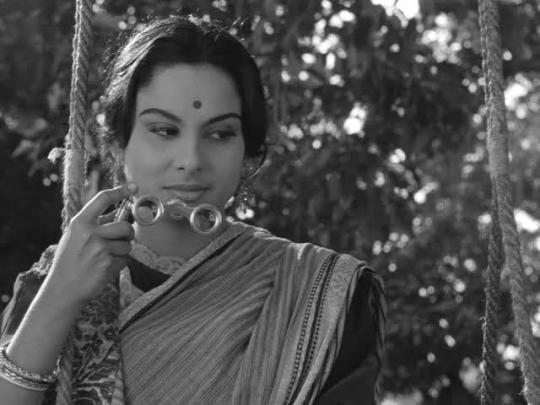
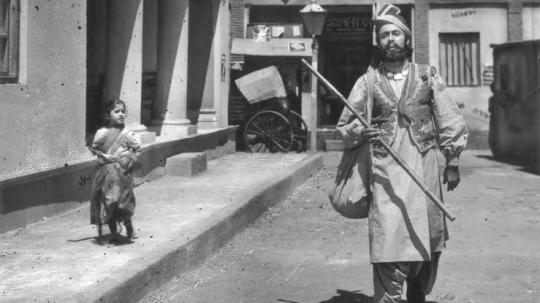
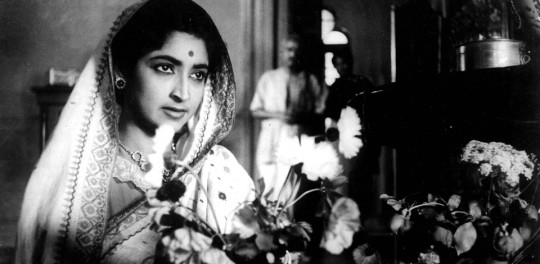
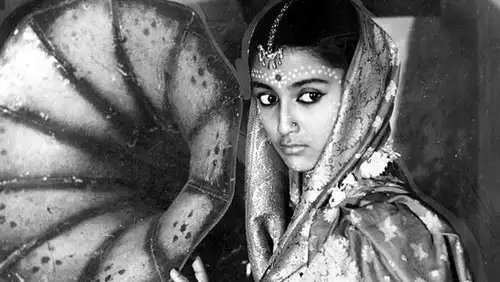
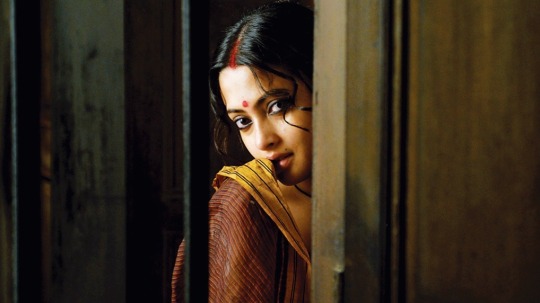
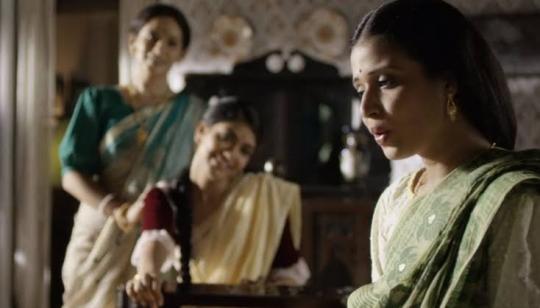
some of my favorite Tagore adaptations in films:
Ghare Bhaire (The Home and The World), dir. Satyajit Ray
Charulata (adapt. of Noshtoneer / The Broken Nest), dir. Satyajit Ray
Kabuliwala, dir. Tapan Sinha
Mohihara, dir. Satyajit Ray
Samapti, dir. Satyajit Ray
Noukadubi, dir. Rituparno Ghosh
Stories by Rabindranath Tagore (anthology series), dir. Anurag Basu
Only the last one is in Hindi (rest in Bengali) and Basu has connected several stories of Tagore in the serries. So orginally, all the stories were separate but in the series some characters appear in more than one story.
#film blog#rabindranath tagore#rabindra jayanti#satyajit ray#rituparno ghosh#anurag basu#bengali film#bengali literature#indian films#indian literature#asian cinema#women in films
21 notes
·
View notes
Text
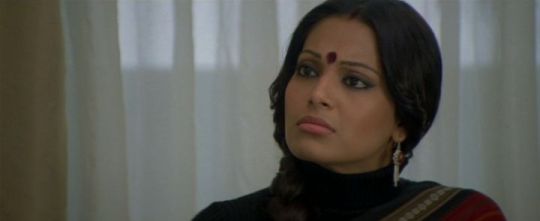
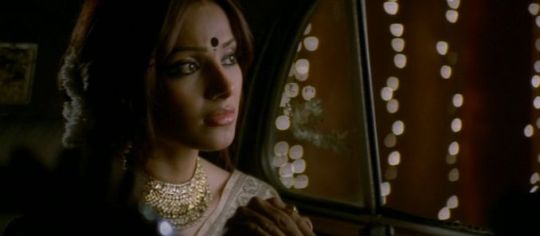
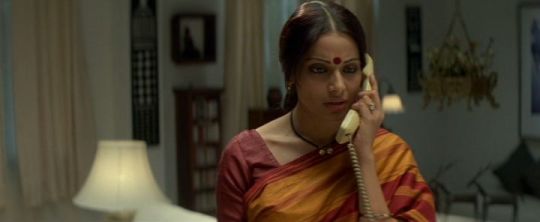
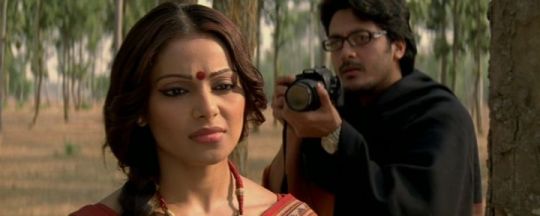
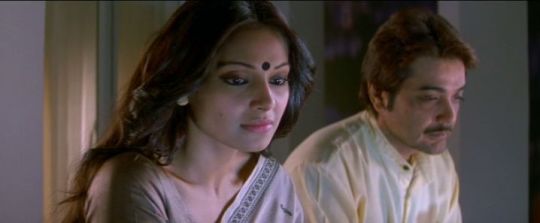


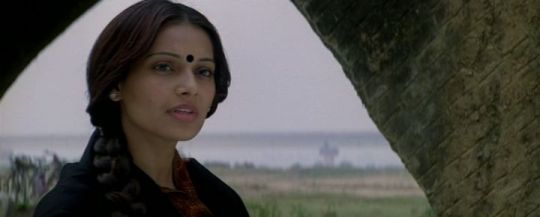
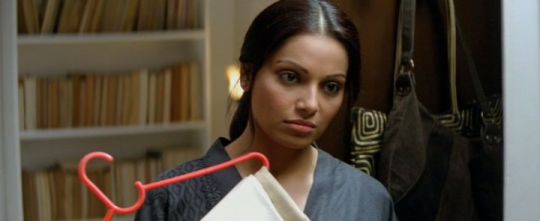
bipasha basu, shob charitro kalponik সব চরিত্র কাল্পনিক (2009) dir. rituparno ghosh
56 notes
·
View notes
Text
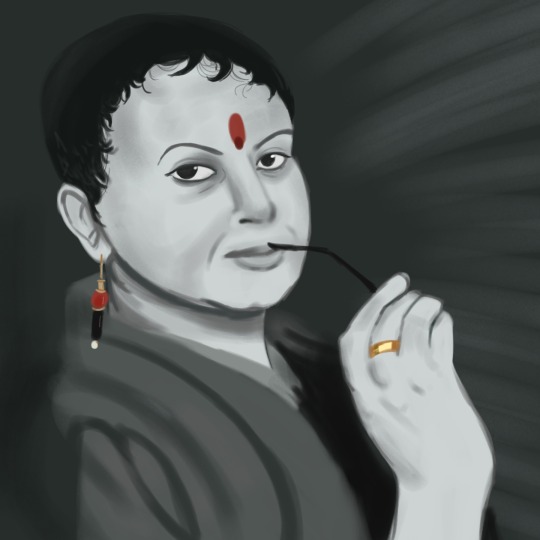
@desi-lgbt-fest day 2: legacy
Rituparno Ghosh.
they were the first person in my mind for this prompt. i don't believe i know another queer person who has as huge a legacy as them in ordinary bengali households.
this 30th may was their 10th death anniversary.
#toripart#desilgbtfest23#“source: anandabazar”#portrait#desi lgbt#genderqueer#bengali#kolkata#rituparno ghosh
70 notes
·
View notes
Note
A pioneer of Bengali cinema, an lgbt icon Rituporno Ghosh is a household name for most Bengalis. Further, he was one of the first openly queer people in the industry. He initially studied economics at Jadavpur Uni in Bengal and then worked for some time in an advertising company.
He made his directorial debut with a movie based on an old Bengali book called Hirer Angti. His subsequent films won many national awards. What I personally find very special about his works is despite the wide variety of storylines they pursue, they all share that similar underlying expression of emotion. The way he captured how people feel and how they express pain, joy, and sorrow is magnificent. They deal with womanhood, homosexuality, gender expression and the consequences they hold in Indian society.
Oh so lovely!!! Please recommend any movie of them if it deals with queerness (we might think of doing a queer bollywood night)
29 notes
·
View notes
Photo
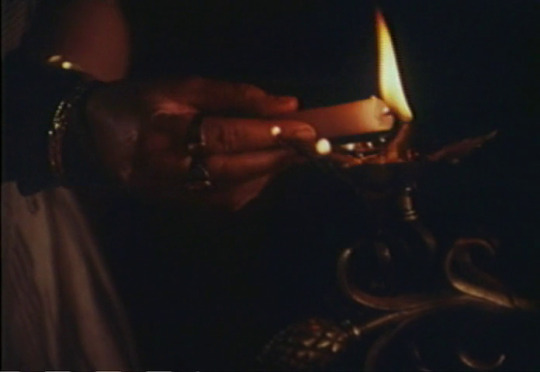
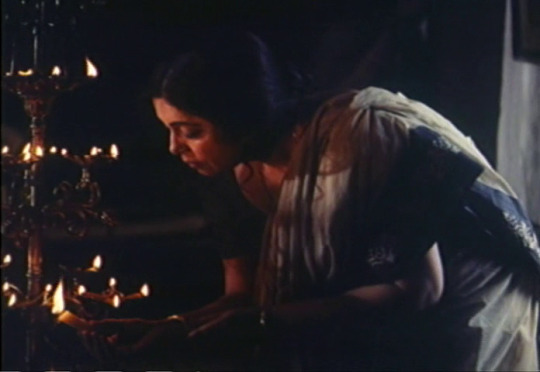
Bariwali / The Lady of the House (2000)
#Bariwali#Bariwali 2000#The Lady of the House#The Lady of the House 2000#Rituparno Ghosh#Kirron Kher#indian cinema#bengali cinema#cinema#films#movies#film scenes#movie scenes#screencaps#cinematography#2000#2000s#indian films#indian movies#indian actress#world cinema
19 notes
·
View notes
Photo
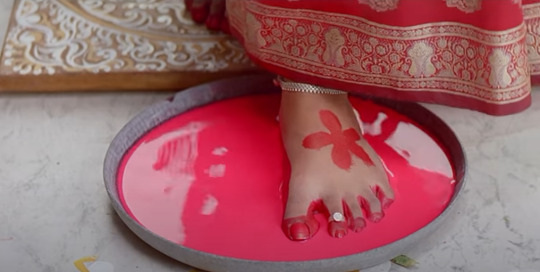

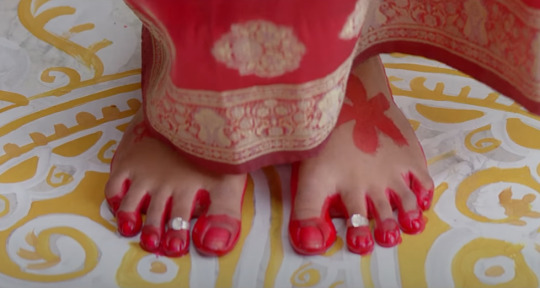
Shob Charitro Kalponik (2009)
28 notes
·
View notes
Text
Review: Rituparno Ghosh On/And Film edited by Somdatta Mandal and Koushik Mondal - Edu CG
Few outside West Bengal are aware that filmmaker Rituparno Ghosh was not only an award-winning filmmaker and actor but also a writer of beautiful memory pieces, profiles, editorials, short stories, song lyrics in Bengali, over which his command was incredible. On being given the responsibility of editing Anandbazar Patrika’s film fortnightly, Anandalok, he gave it a new look. Some years later, he…
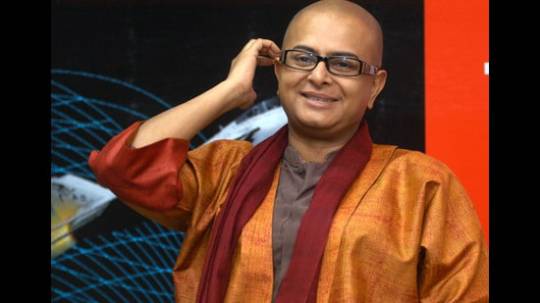
View On WordPress
1 note
·
View note
Text
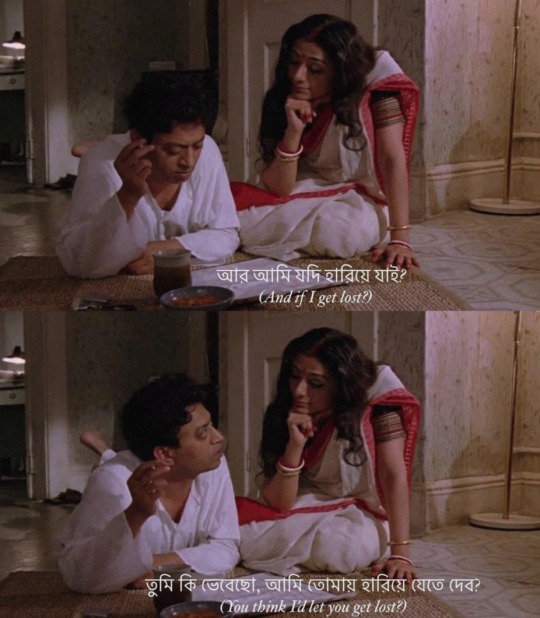
just got to know the dialogues for "the namesake" by jhumpa lahiri were translated by rituparno ghosh, and it makes sense. i mean who else would write something like “আর আমি যদি হারিয়ে যাই ?”(what if i get lost?) followed by “তুমি কি ভেবেছো, আমি তোমায় হারিয়ে যেতে দেব?”(you think id let you get lost?) how else does one convey the feeling of home if not by speaking the language of home?
#jhumpa lahiri#namesake#bengali literature#romanticism#words#desi stuff#desi ramble#desi romance#desi tag#desi academia#desi books#desi culture
40 notes
·
View notes
Text
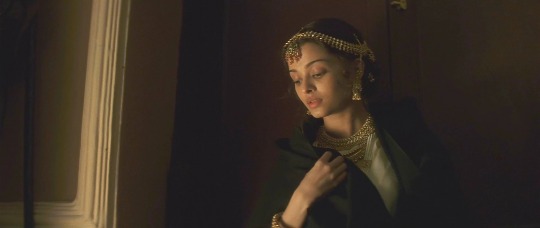




Chokher Bali (2003)
Dir. Rituparno Ghosh
12 notes
·
View notes
Photo
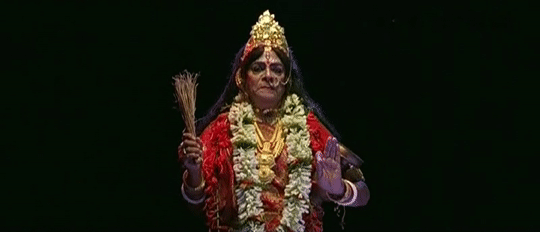
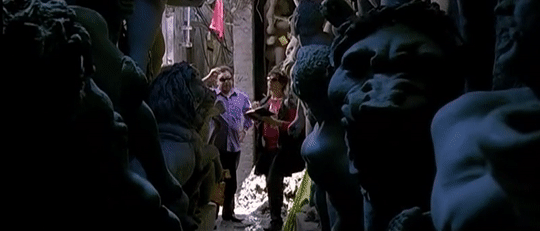

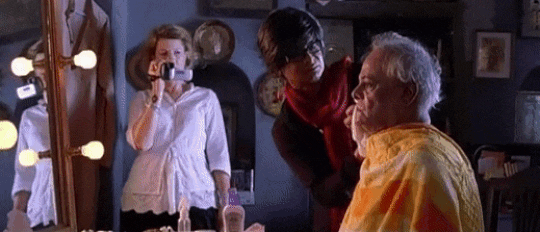
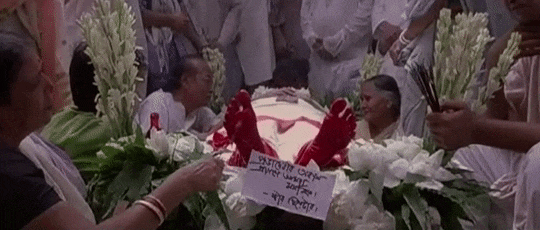
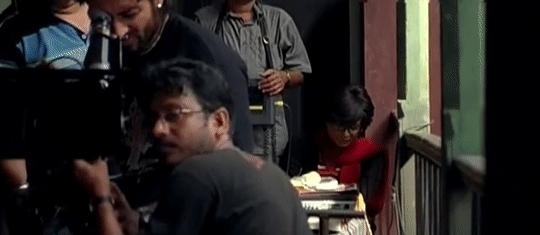

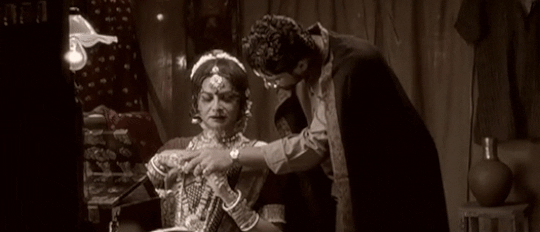

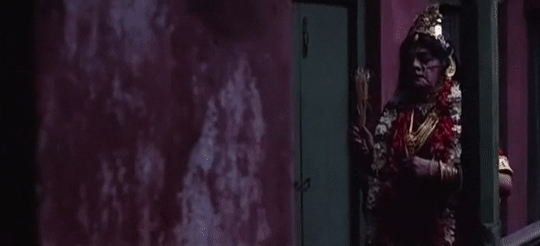
আরেকটি প্রেমের গল্প | AREKTI PREMER GOLPO (2010)
dir. Rituparno Ghosh & Kaushik Ganguly
Delhi based transgender filmmaker Abhiroop Sen and her cinematographerlover wish to make a documentary on the life of famous Jatra (Bengali folk theater) actor Chapal Bhaduri, but doing so Sen, recognized that her life resemble Chapal's life.
(link in title)
#lgbt cinema#trans cinema#arekti premer golpo#just another love story#indian cinema#tollywood#lgbt#trans#transgender#india#bengali#lgbt film#trans film#indian films#lgbt movie#trans movie#indian movies#lgbt movies#trans media#queer cinema#asian cinema#south asia#rituparno ghosh#chapal bhaduri#indraneil sengupta#2010s#2010#2010s movies#2010s cinema#2010s films
34 notes
·
View notes
Text
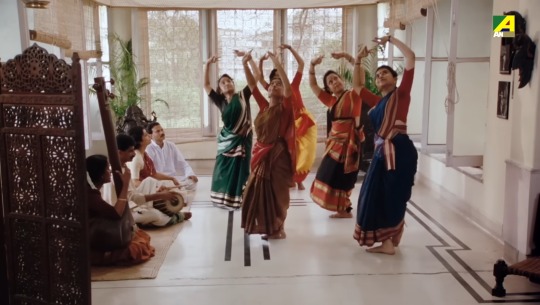
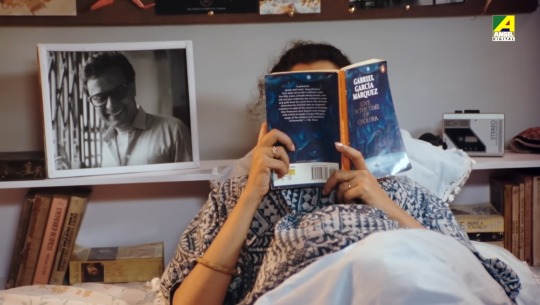
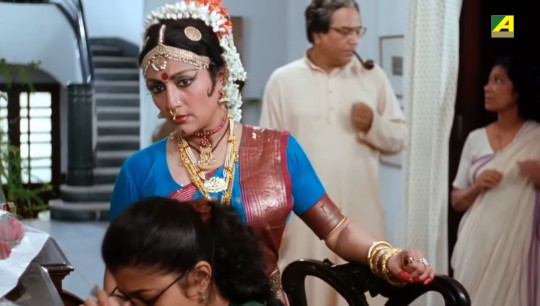
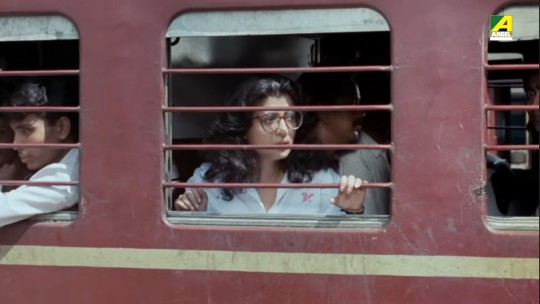
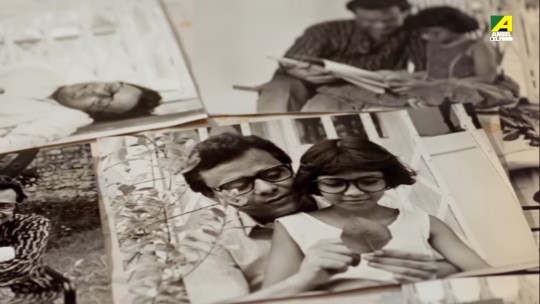
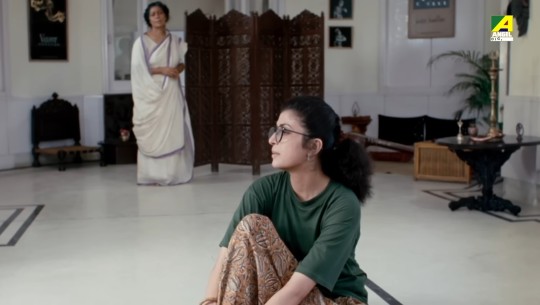
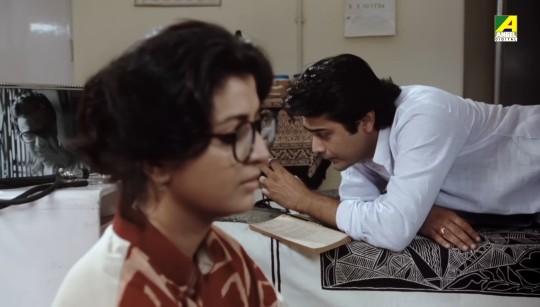
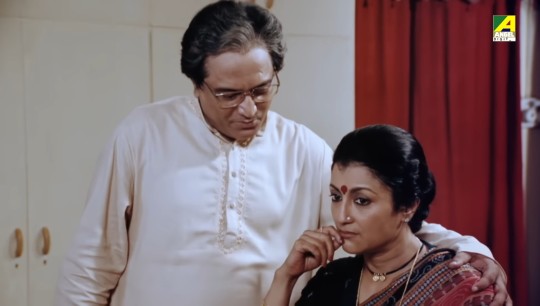
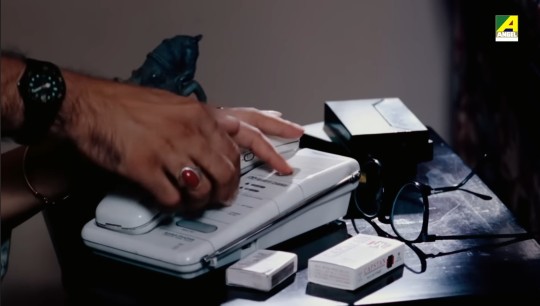
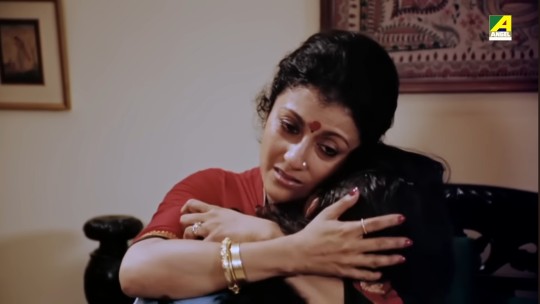
Unishe April (1994), dir. Rituparno Ghosh
#film blog#asian cinema#indian films#indian cinema#bengali film#bengali cinema#rituparno ghosh#unishe april#women in film
4 notes
·
View notes
Text
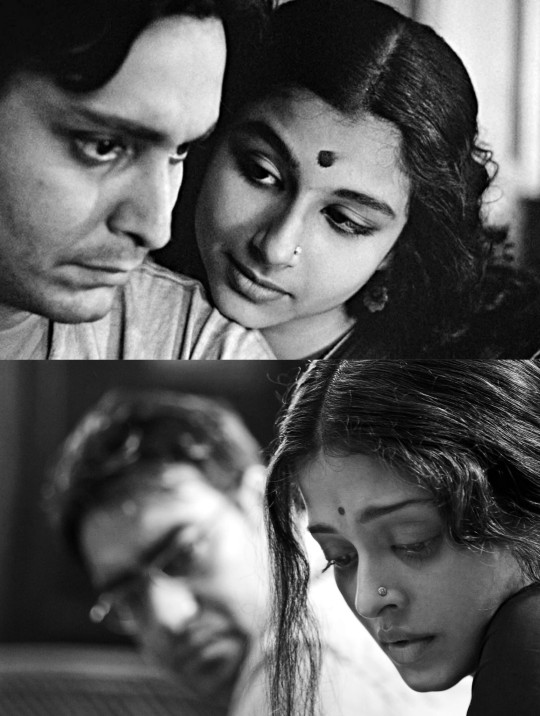
• the world of apu (satyajit ray, 1959)
• raincoat (rituparno ghosh, 2004)
27 notes
·
View notes
Text
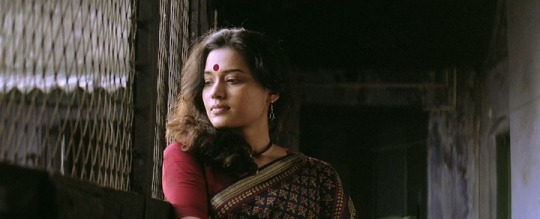
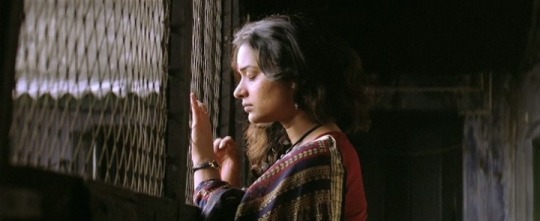
Ananya Chatterjee, Abohomaan (2009)
15 notes
·
View notes
Text
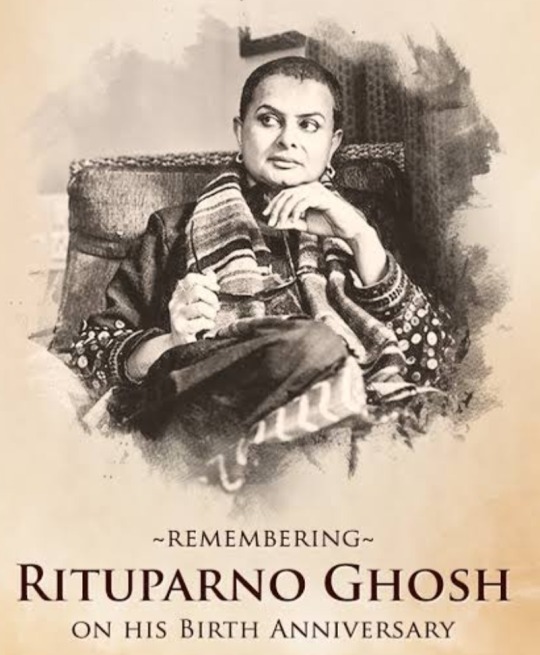
Remembering Rituparno Ghosh on his birthday. Birthday wishes from Bandya Mama
2 notes
·
View notes
Text
Queering Bengali Cinema: Rituparno Ghosh's Retelling of Cultural Texts
Themes of loneliness drive my films"
~Rituparno Ghosh

Antarmahal (2005)
Shubho Mahurat (2003)
Chokher Bali (2003)
Abohomaan (2009)
Dosar (2006) Utsab
(2000) Dahan (1997) Unishe April (1994) Shob Charitro Kalponik (2009) Asukh (1999)
Rituparno Ghosh was a gender nonconforming, sexually dissident filmmaker who made and acted in films revolving around openly homosexual, bisexual and transgender characters. For his work, he won accolades including national awards in India and recognition at film festivals around the world. In 2013, 50-year-old Ghosh met with an untimely death due to heart attack; however, he lives on as India’s most visible queer icon, whose mere presence shook the heteropatriarchal foundations of Bengal’s as well as India's cultural milieu.
In two decades of his filmmaking career, Ghosh consistently engaged with topics considered taboo in the Bengali bhadralok society. Even though, it was much later that he started working with explicit queer content in his films, in the early phase of his career, in films such as Unishey April (1994), Dahan (1997), Bariwali (1999), Utsab (2000), Shubho Maharat (2003), Ghosh dealt with trauma and repressed desire of women in a patriarchal society, seen by scholars as a reflection of the agony of a queer individual in the proverbial closet in a heteronormative society.[1]
Ghosh’s cinema was relatable for the Bengali bhadralok because it was heavily influenced by the film aesthetic of revered filmmakers such as Satyajit Ray. While this visual language made him a favourite of the English-educated, urban Bengali, his exploration of the ‘unusual themes’ placed him at the receiving end of scathing criticism. Ghosh, however, was quick to find a middle ground. He succeeded in evoking the nostalgia of the rich heritage of Calcutta by employing Hindustani classical music or Rabindra Sangeet as background score, and by setting the film narrative in the decorated interiors of old mansions of colonial or pre-colonial Calcutta. Under the garb of such nostalgic elements, he lured the bhadralok audience to the cinema theatre and presented his queer film aesthetic in a way that would suit their sensibility. This subterfuge of relatability helped Ghosh naturalise the themes of same-sex desires and the experiences of queer people of his later films.
In a similar vein, in queer-centric films that Ghosh made, influenced or took part in, such as Arekti Prem er Golpo (2010), Memories in March (2010) and Chitrangada: The Crowning Wish (2012), he freely accessed indigenous cultural resources to validate their contents. He delved into Bengal’s religious myths and cultural artefacts to perform alternative readings that not only helped historicise homosexual and other queer desires, but also helped normalise their struggles in the eyes of the cinemagoers.
Arekti Prem er Golpo: Androgyny and the Figure of Chaitanya Arekti Prem er Golpo (Just Another Love Story) is a film that Ghosh heavily influenced, although he did not direct it. The director, Koushik Ganguly, later confessed that Ghosh was rather stubborn about playing the role of the queer protagonist after his own image, instead of indulging the director’s idea. The film narrates the story of Abhiroop (played by Ghosh), an effeminate, homosexual filmmaker who is in the process of making a documentary film about Chapal Bhaduri, a Bengali jatra (popular folk theatre form of Bengal) actor who performed the roles of women on stage for 40 years. In the 1960s, Chapal Rani, as Bhaduri was known, was allegedly the highest paid ‘actress’ of Bengali jatra. The reference to the figure of Chapal Bhaduri in Arekti Prem er Golpo and his experiences as a performance artist, who constantly straddled male and female roles, supports the idea that gender is performative rather than biological. Abhiroop’s character is a modern-day parallel of Chapal’s. He loves a man but loses him when his lover’s wife becomes pregnant; the possibility of a child born out of a socially accepted heterosexual relationship, thus, obstructs the queer characters’ path to fulfilment. Abhiroop’s fate mirrors Chapal Bhaduri’s career as a female impersonator on stage, which came to an end when biologically female actors finally shattered the shackles of patriarchal restrictions and found their rightful place on stage. It restored the heteronormative standards where only a biologically female actor could play the part of a woman, and a biologically male actor could assume the role of a man. Bhaduri was no longer required to switch between gender binaries; while women emerged in the public space of the stage, the gender-queer actor was made to fade away.
The marginalisation that the gender nonconforming identities have to suffer echoes through the film, but there is also an assertion of the legitimacy of the ‘other’ gender beyond the male/female binary. The following conversation between Chapal and Abhiroop reflects this in the most effective way:
Abhiroop: Do you really see yourself as a woman, Chapal-da?
Chapal: Oh my! If I thought I was a man, there would not be any problem.
Abhiroop: I think women are one category, men are another, and we are a third category.
The reference to Sri Chaitanya, founder of the Gaudiya Vaishnava sect, also brings to the fore the celebration of androgynous identities and queer desires. Abhiroop, at one point, shaves his head to acquire a sort of ‘genderless’ look and narrates the story of Sri Chaitanya, whom he considers to be an icon of native cultural androgyny; Sri Chaitanya embodied both Radha and Krishna and preached Radha bhava (emotion)where the worshipper is in passionate love with Krishna. Ghosh’s films are also noted for their recurrent use of Vaishnava padavali (a lyric poetry tradition of verses narrating the erotic love play of Radha and Krishna).
Memories in March: Same-sex Desire and Brajabuli Lyrics Memories in March, written by Ghosh himself, and directed by Sanjay Nag, has a song written in Brajabuli language (an artificial language created by the fourteenth-century poet Vidyapati to write about the love of Radha and Krishna) by Ghosh which captures the eternal longing of the virahini (estranged lover) to be one with her love. The song, bahumanaratha saju abhisarey pahenu suneel bes (In the hope of meeting my lover, I put on a blue dress), speaks of Radha’s hope and anxiety about the possibility of meeting Krishna after a long separation.[2] The song plays in the background of scenes focussing on the sudden demise of Sidhharth, the lover of Ornab (played by Ghosh), in a car accident.
The use of this Brajabuli song in describing the love, longing and tragic end of a homosexual relationship accentuates the idea that same-sex desires transcend superficial physical attraction and have emotional and spiritual vitality like any romantic relationship. Ornab’s agony at the passing away of Siddharth is naturalised in the bhadralok eye by equating it with Radha’s agony at her separation from Krishna. Even in the film Raincoat (2004), there are Brajabuli songs narrating an illicit affair between a married woman and her childhood lover. These songs substantiate the queer aesthetic of Ghosh who bridges the gap between the legends of the illicit love affair of Radha-Krishna with the modern love affairs that function outside societal norms.
The language of the songs that establish the mood of Ghosh’s films is significant as well. According to Professor Bakshi, the use of songs written in Brajabuli language itself is symbolic[3] because Brajabuli is a language that does not have any geographical or cultural boundary; it is a language that borrows vocabulary from several other Indian languages. No language is, therefore, more suitable to carry the emotional gravity of the lived reality of people who do not fall under gender binaries.
https://safe.txmblr.com/svc/embed/inline/https%3A%2F%2Fyoutu.be%2Fte8LQ0WTjVE#embed-648f2693a5259326767389
youtube
Chitrangada: Gender Fluidity and Indigenous Myth Chitrangada: The Crowning Wish is a film that Ghosh wrote, directed and acted in. It draws inspiration from the legend of Princess Chitrangada whose father raised her as a boy but who wished to become a woman after falling in love with Arjuna. The film revolves around Rudra who meets Partho while rehearsing for a dance drama based on Tagore’s play Chitrangada (1892), falls in love with him and goes through a sex reassignment surgery to be able to bear a child. The story has conspicuous similarities with the Chitrangada myth. It validates the existence of deviant desires and identities from time immemorial, and invalidates the idea that these are the by-products of Western influence and modernity.
Ghosh’s engagement with the alternative readings of native resources not only queered the language of Indian cinema but also helped the Indian queer demography in locating itself in the indigenous culture of the land. His films and his presence in media as an openly queer individual gave the LGBTQ+ community of Bengal, and India at large, a voice. However, he has faced some criticism from the LGBTQ+ community for the glaring absence of the queer subculture, such as the drag culture and kotha-hijra(transgender communities)tradition of India in his cinema.[4] All the queer characters of his films are English educated, from urban spaces and financially affluent. This helped him naturalise queer identities in the bhadralok eye but weakened his films in terms of queer visibility, the politics of representing and bringing to the fore a heterogeneous cluster of queer figures in popular media.
https://safe.txmblr.com/svc/embed/inline/https%3A%2F%2Fyoutu.be%2FS0aETqBudTA#embed-648f2693a53ab862934033
youtube
https://safe.txmblr.com/svc/embed/inline/https%3A%2F%2Fyoutu.be%2F7prDTZhwA8U#embed-648f2693a54b2285396613
youtube
https://safe.txmblr.com/svc/embed/inline/https%3A%2F%2Fyoutu.be%2Fu96MJrjO3BM#embed-648f2693a557e953251883
youtube
23 notes
·
View notes
Photo
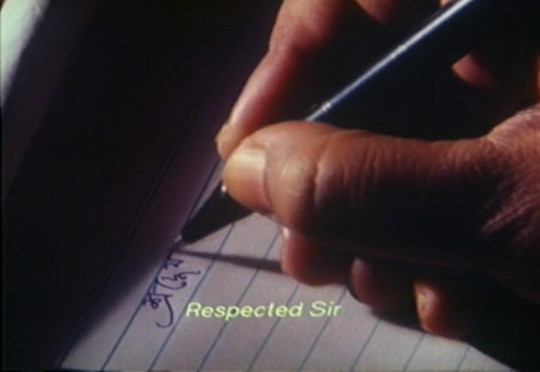
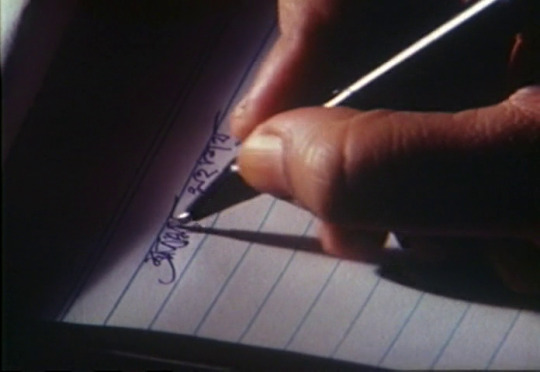
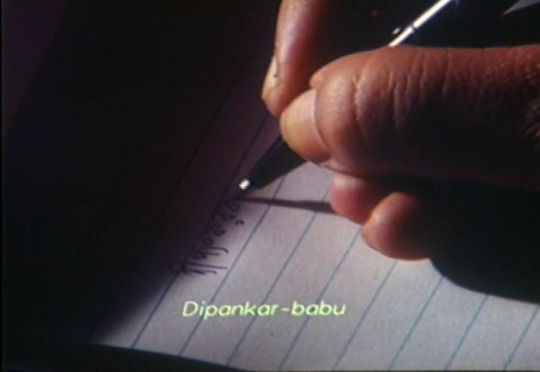
Bariwali / The Lady of the House (2000)
#Bariwali#Bariwali 2000#The Lady of the House#The Lady of the House 2000#indian cinema#bengali cinema#cinema#Rituparno Ghosh#Kirron Kher#films#movies#film scenes#movie scenes#screencaps#cinematography#indian films#indian movies#2000#world cinema#2000s
12 notes
·
View notes